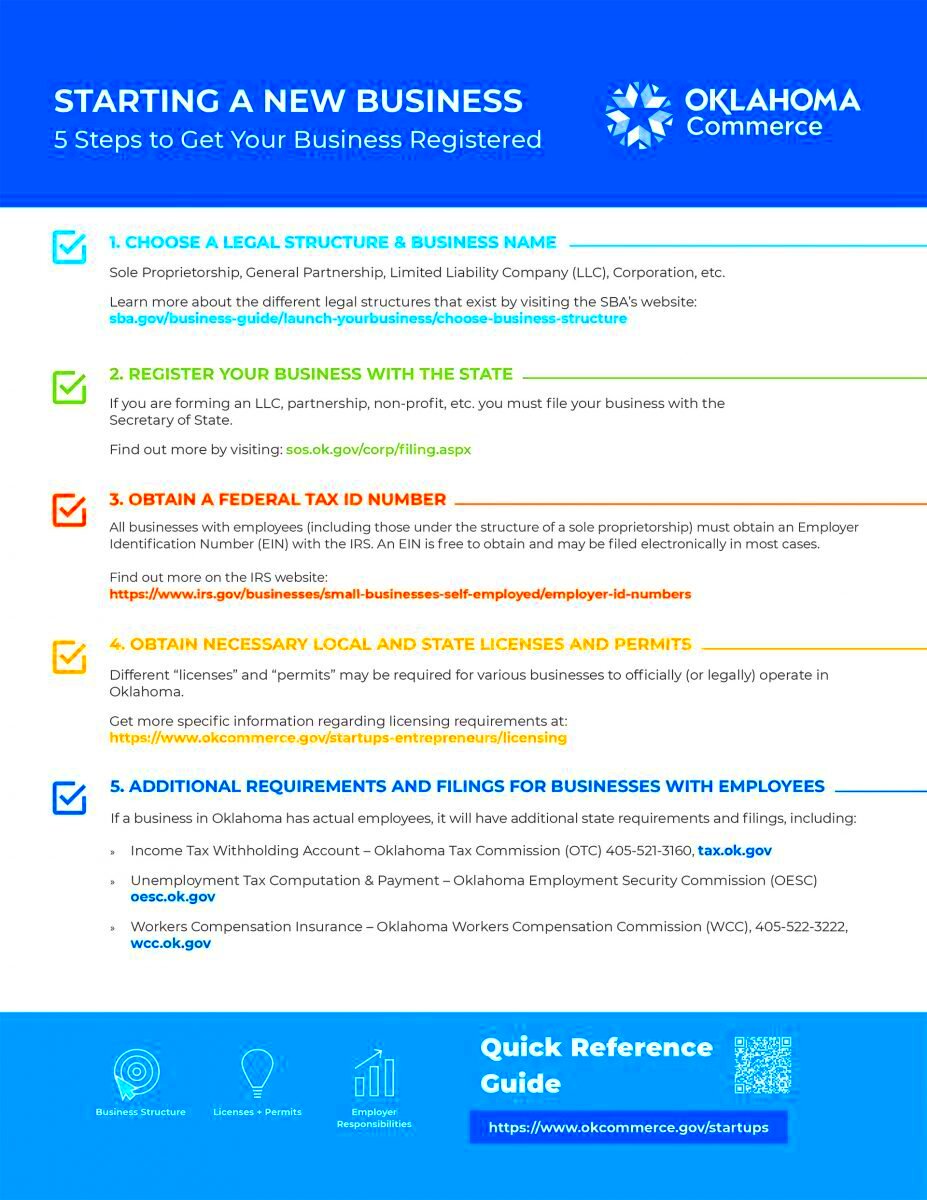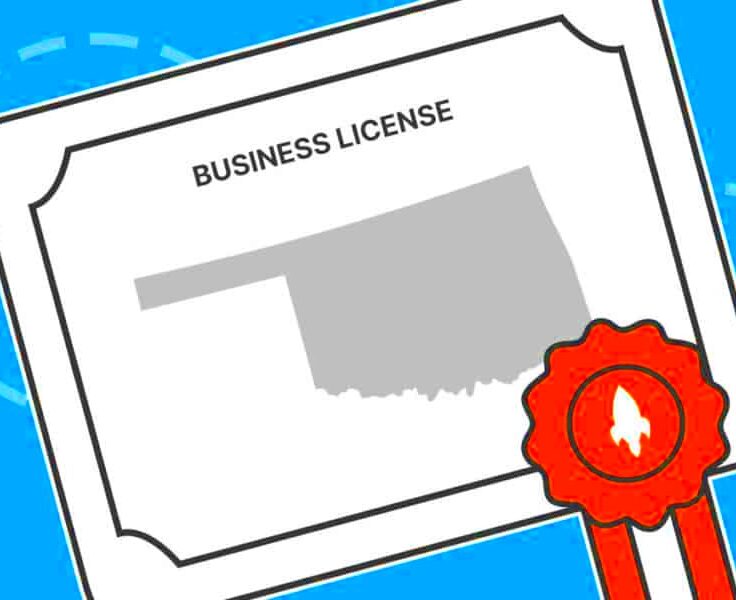What You Need to Know About Oklahoma Business Regulations
When it comes to the regulation of businesses, Oklahoma has its own characteristics. The aim of these laws is to establish a level playing field and safety for corporations as well as their clients. Every successful entrepreneur or budding business has to know what such regulations involve. They address things like licensing, taxation, labor code among others. This information enables one to be compliant with the law and thus ensures that his/her company flourishes in the state.
Types of Businesses Regulated in Oklahoma

Oklahoma governs various industries for the sole objective of making sure that they comply with the laws in place. Below are examples of some standard forms:
- Corporations: These are legal entities separate from their owners, requiring specific reporting and operational guidelines.
- Partnerships: Involves two or more people sharing profits and responsibilities, which must adhere to partnership laws.
- Sole Proprietorships: The simplest form of business owned by one person, but still subject to certain regulations.
- Limited Liability Companies (LLCs): Combines the benefits of a corporation and a partnership, with its own set of rules.
- Nonprofit Organizations: These operate for charitable purposes and have specific requirements to maintain tax-exempt status.
It is crucial to ensure adherence to the existing laws and regulations by comprehending what kind of business you are engaged in.
Key Licensing Requirements for Oklahoma Businesses
In Oklahoma, prior to starting a business you must acquire relevant licenses and permits. This is a summary of some crucial requisites:
- Business License: Most businesses in Oklahoma need a general business license. This is usually issued by the city or county where your business is located.
- Professional Licenses: Specific professions, like doctors and lawyers, require state licenses. It’s crucial to check if your profession is regulated.
- Sales Tax Permit: If you’re selling goods or services, you must register for a sales tax permit with the Oklahoma Tax Commission.
- Health Permits: Businesses in the food industry need health permits to ensure compliance with safety standards.
- Zoning Permits: Before opening, check local zoning regulations to ensure your business complies with land-use laws.
In order to avoid being fined or having problems with the law, it is essential to keep up to date with any adjustments in licensing requirements.
Important Tax Obligations for Businesses in Oklahoma
In Oklahoma, it is vital to understand the tax liabilities involved in operating a business. Taxes are not only a financial commitment but also a component of your business plan. Being aware of different taxes enables you to make plans effectively and avoids unforeseen issues later. In Oklahoma, different tax requirements exist based on the kind of firm and its actions.
Tax obligations that are principal and you have to be very cautious about include:
- Corporate Income Tax: Corporations operating in Oklahoma must pay a state income tax on their earnings. The current rate is a flat 6 percent.
- Sales Tax: If your business sells tangible goods or certain services, you need to collect sales tax from customers. The state sales tax rate is 4.5%, but local municipalities can impose additional sales taxes.
- Franchise Tax: This tax applies to corporations and LLCs based on the amount of capital they have. It’s a minimal fee, but it’s important to keep track of.
- Property Tax: Businesses owning real or personal property must pay property taxes. The rate varies depending on the local jurisdiction.
- Employee Withholding Tax: If you have employees, you need to withhold state income tax from their wages and remit it to the Oklahoma Tax Commission.
Consulting with a tax agent will be beneficial so you can conform to every obligations and take note of any inch available deductions.
Labor Laws and Employee Rights in Oklahoma
Grasping work laws and laborer liberties in Oklahoma is crucial for keeping up an equitable ambience of work. These laws not only defend the employees but they also aid employers from shunning concerning legitimate matters. There are explicit rules in Oklahoma that govern different facets of employment ranging from recruitment to discharge.
Here are a few important things you might want to think about:
- Minimum Wage: The minimum wage in Oklahoma is currently $7.25 per hour, which aligns with the federal minimum wage.
- Overtime Pay: Employees who work over 40 hours in a workweek must receive 1.5 times their regular pay for those hours.
- Workers’ Compensation: Employers are required to provide workers’ compensation insurance to cover work-related injuries or illnesses.
- Anti-Discrimination Laws: Oklahoma law prohibits discrimination based on race, color, religion, sex, national origin, age, and disability.
- Employee Rights to Organize: Employees have the right to form, join, or assist labor organizations and engage in collective bargaining.
The act of keeping oneself updated with the aforementioned regulations creates an affirmative job atmosphere thereby reducing conflict stakes.
Environmental Regulations Affecting Businesses
Operating any business in today’s world means that you ought to be aware of its negative impacts on the environment. Environmental sustainability is one of the core elements used by various regulatory authorities across the globe in charge of controlling businesses. Therefore, this paper will also look into how important it is to understand these policies to ensure adherence as well as enhancement of the image of the company.
Below are some important environmental regulations that you must know:
- Pollution Control: Businesses must comply with the Oklahoma Department of Environmental Quality (DEQ) regulations, which set standards for air and water pollution.
- Waste Management: Proper disposal of hazardous waste is crucial. Businesses must follow state and federal guidelines for waste management and disposal.
- Environmental Permits: Certain activities may require permits, such as emissions from manufacturing processes or discharges into water bodies.
- Reporting Requirements: Businesses must report any spills or environmental incidents to the DEQ, following specific protocols to minimize environmental damage.
- Sustainability Practices: Implementing sustainable practices not only helps the environment but can also lead to cost savings in the long run.
Pioneering environmental laws can strengthen your image and enable you conform to the legislation of the region in which your enterprise operates.
Compliance and Enforcement of Business Regulations
In Oklahoma, business regulation compliance entails more than just obeying the law; it also involves fostering a reputation that can be trusted. Additionally, knowing how regulations are enforced may help in avoiding future problems and controlling any possible compliance problems. Different agencies in the state exist to ensure that businesses follow their rules and understanding them will make you remain in line with the regulations.
To begin with, let’s explain what compliance is. Compliance means following rules, laws or guidelines in order to avoid getting into trouble with authorities responsible for enforcing them. On the other hand, enforcement refers to making sure that those who do not adhere to legal provisions are punished. In this regard, they impact on each other in these ways:
– Compliance ensures that all people in a given country obey the law so as to make enforcement possible.
– In countries where laws are breached with impunity by certain individuals or groups enforcement cannot take place because no one considers themselves answerable to the law.
Therefore, we must make it clear that compliance and enforcement are two sides of the same coin used in debating issues surrounding them.
– The strength of this relationship is shown by the fact that a country’s ability to enforce rules and regulations is dependent on how much its citizens comply with them.
– On the other hand, there are situations where enforcement fails because noncompliance becomes an acceptable norm.
Consequently, both compliance and enforcement have to be taken together when discussing matters relating them.
Some points about compliance and enforcement are as follows:
- Regulatory Agencies: Several agencies oversee business compliance, including the Oklahoma Secretary of State, Oklahoma Tax Commission, and the Department of Environmental Quality. Each has its own area of focus, so it’s important to know who regulates your business type.
- Inspections and Audits: Businesses may be subject to inspections or audits to ensure compliance with health, safety, and environmental regulations. Being prepared can make these processes smoother.
- Penalties for Non-Compliance: Failing to comply with regulations can lead to fines, penalties, or even legal action. Understanding the consequences can motivate you to stay compliant.
- Reporting Violations: If you observe violations, you can report them to the appropriate agency. This helps maintain a fair business environment.
- Regular Updates: Regulations can change, so it’s important to stay informed through newsletters or official announcements from regulatory bodies.
Gaining knowledge about rules that are complied with brings about foresight into the problems that may arise as well as aids in creating an atmosphere of accountability among workers in an organization.
Resources for Business Owners in Oklahoma
If you are a business owner in Oklahoma, you no longer have to go through the maze of rules and regulations on your own. There are a range of tools at your disposal that will assist you in comprehending the mandates and making it big in the entrepreneurial world. They include government departments and local institutions, which can aid you with advice and support.
Here are a few resources to take into consideration:
- Oklahoma Secretary of State: This office provides information on business registration, licensing, and compliance requirements.
- Oklahoma Small Business Development Center (OSBDC): Offers free business consulting, workshops, and resources to help you grow your business.
- Oklahoma Department of Environmental Quality: Provides information on environmental regulations, permitting, and compliance assistance.
- Oklahoma Tax Commission: A great resource for understanding tax obligations, filing processes, and available deductions.
- Local Chambers of Commerce: Joining your local chamber can provide networking opportunities and access to valuable business resources and events.
Your business can have success through legal compliance and dealing with international regulations using these resources.
Frequently Asked Questions
Comprehension of the trade policies may be much and hence the queries are frequent. The following are some commonly asked questions that can help you sort your worries:
- What licenses do I need to start a business in Oklahoma? It depends on your business type, but most require a general business license, and certain professions need additional licenses.
- How do I register my business? You can register your business with the Oklahoma Secretary of State, either online or in person, depending on your business structure.
- What are the tax rates for businesses in Oklahoma? Corporate income tax is 6%, while sales tax is 4.5% plus any local taxes.
- Are there resources available for small business support? Yes, the Oklahoma Small Business Development Center and local chambers of commerce offer valuable support and resources.
- How can I stay updated on changing regulations? Subscribe to newsletters from regulatory agencies and join business associations to receive updates.
If any additional queries persist, please feel free to contact nearby organizations or seek advice from a law expert.
Conclusion
It is crucial for anyone looking to start or run a business in Oklahoma to have an understanding of the state’s business regulations. Knowing your tax obligations, complying with labor laws as well as environmental regulations are some basic things that need to be considered by one who wants to ensure that their business operates smoothly and legally. By using available resources and adhering to reasonable compliance practices, you will not only shield your enterprise from possible legal problems but also help promote justice and equity in the economy of Oklahoma. Keep this in mind: if you take time beforehand to understand these rules, it may well be the road towards success and longevity of your enterprise.


